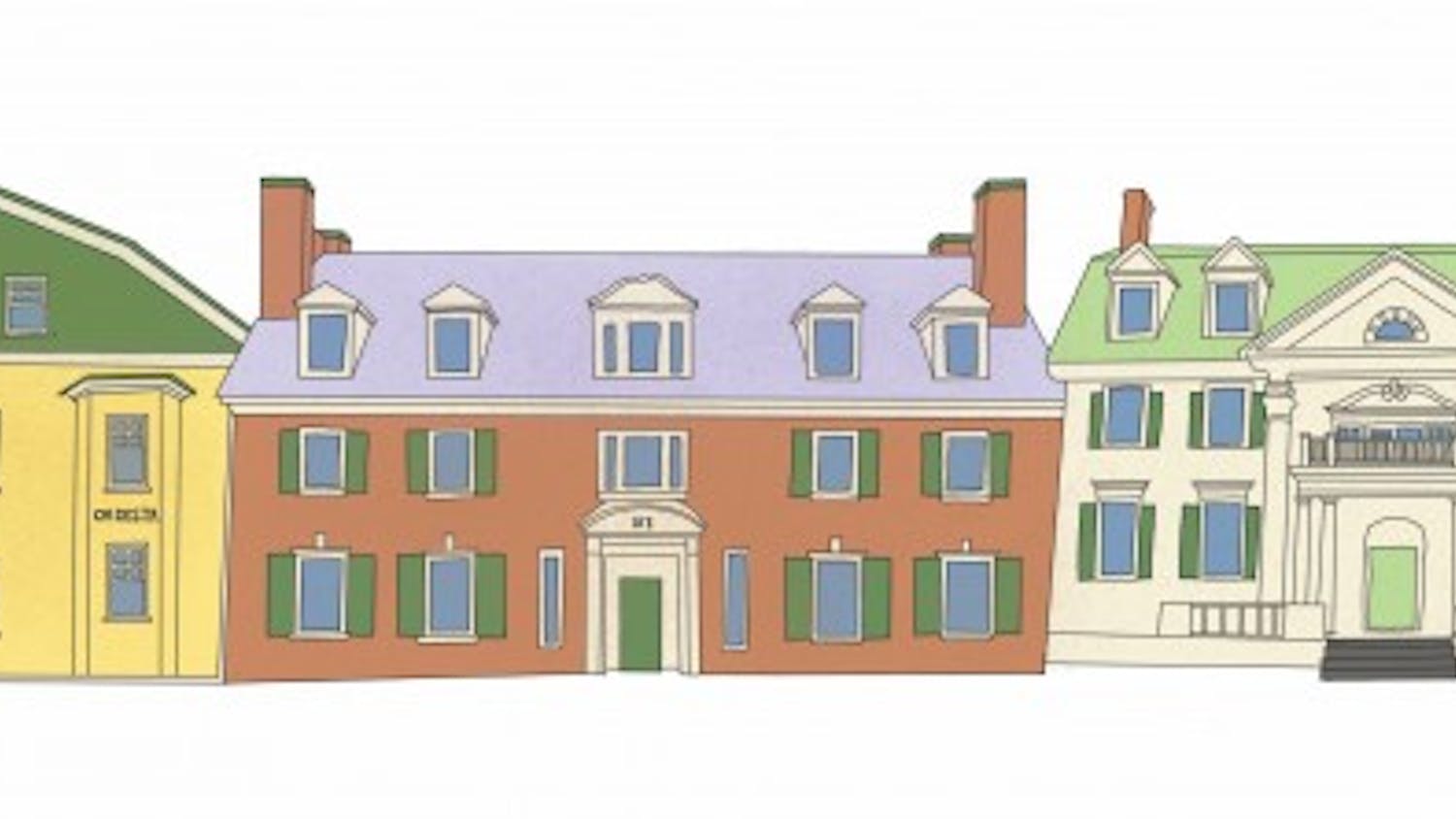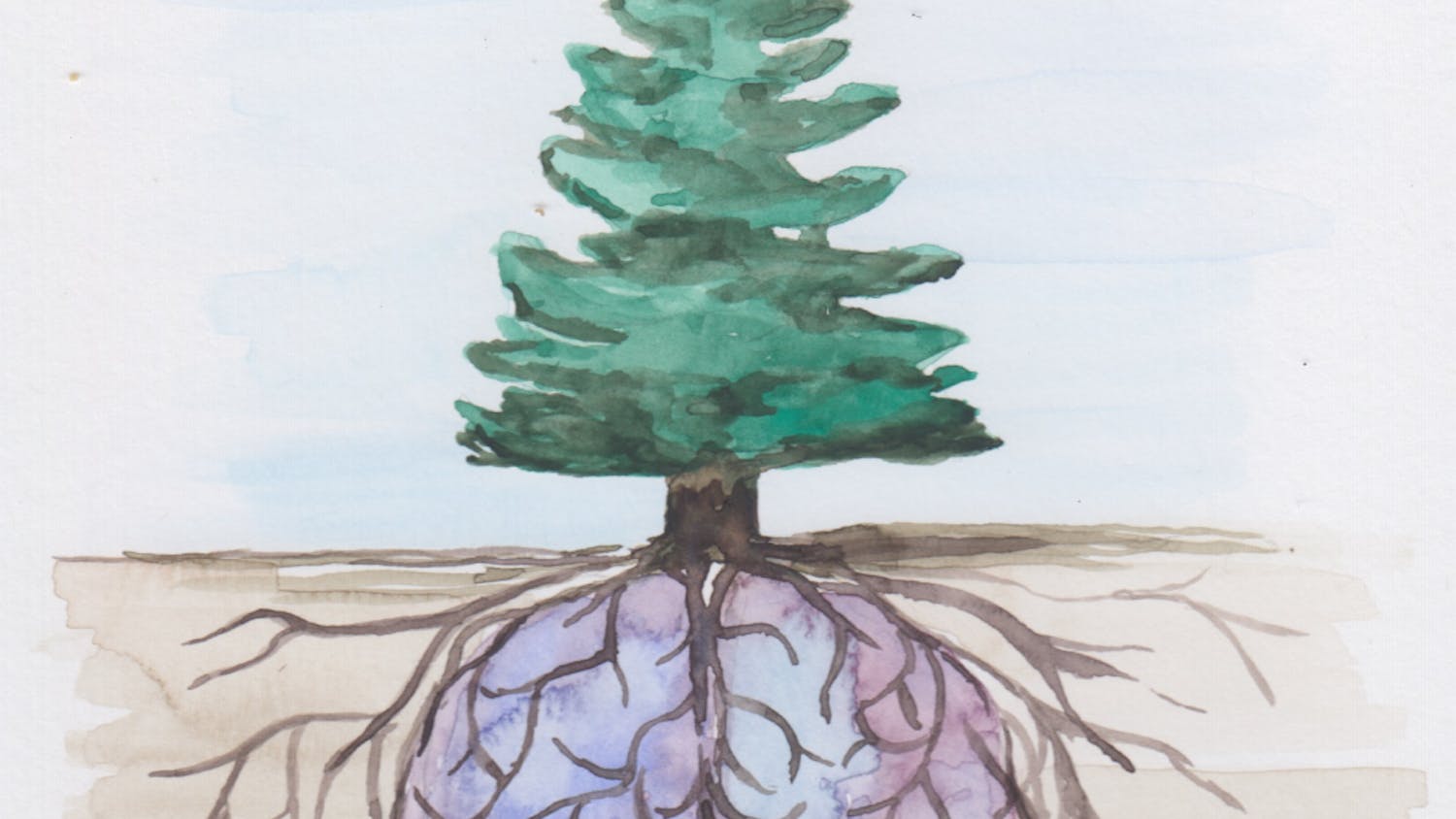The cold morning of Sept. 30 saw a trickle of people headed towards Rollins Chapel: elderly folks from cars, tallis and yarmulke in tow; professors corralling tykes in itchy clothes; some students in slacks and sport coats and some in khakis and sweaters; security guards in dark uniforms, hired to keep the peace. While everyone looked different, everyone tried to look their best.
This was, after all, Rosh Hashanah, one of the two holiest days in the Jewish calendar. The other, Yom Kippur, came just over a week later on Oct. 9, and between the two, Jews would have the opportunity to repent from the time their judgement is pronounced until it is finalized. A year of decisions and actions comes under the microscope, and Jewish people have 10 days to edit their chapter before the copy is sealed and a new page begins.
While these two holy days touched just a fraction of Dartmouth’s campus, themes of judgement and renewal hung heavily over Hanover in the days before and after. Exchange silent contemplation with loud conversation. Exchange God with presidents and prayer books for name tags. It all starts to look a lot like rush.
Beginning two days before Rosh Hashanah, Inter-Sorority Council recruitment stretched until the afternoon of Oct. 5. Interfraternity Council recruitment, a much less ceremonial process, formally commenced and concluded on Oct. 4 and 5, respectively. Four days later, the Jewish days of judgement ended with breaking the day-long fast on the evening of Yom Kippur. Religious judgement found itself entangled in a secular judgement, both illuminating themes in the other.
For sophomores who decided to rush, the last year of social connections and conversations came under the microscope. Many reckoned with the identities they built throughout their first year at Dartmouth. Rush opens a student’s book for edits, allowing each to reevaluate their identities, advocate for themselves and make a case to the house in which they think they belong. Students attempt to forge new connections and tend to old ones in a process based on snap judgements from short conversations.
Unlike religious judgement from God, the determinations made through the process of rush are not always accurate. Snap judgements can become misjudgements. Whereas religious judgement comes gradually, carefully forming itself over the course of a calendar year, rush compresses the process into a couple days at the start of fall term. Because the accuracies are not on par with each other, neither should be the conclusions.
To those for whom rush ended in disappointment, it is important to remember that the verdict is not a binding, accurate judgement of you as a person. If you did not end up where you thought you would, or anywhere at all, do not let the sour beginning spoil all of the sweetness to come later this year. If you decided not to join a Greek community, you still have all of the qualities and quirks that inform your personality. You are still a member of Dartmouth, an affiliation that will outlast your time in a Greek community and your time in Hanover. Most importantly, while the good and bad of today are certainly significant, each chapter does not have to be great for the book to be great. In fact, the issues and conflicts are what make the book that much better.
While judgement and repentance are essential components to the Jewish High Holy Days, to paint a purely somber portrait would be a misrepresentation. During Rosh Hashanah, Jews turn the page to a new year, welcoming its challenges and successes by eating apples and honey, a symbol of the fruitful times ahead, and sounding the shofar, a ram’s horn blown at the end of Yom Kippur. With a new year comes exciting changes and opportunities. For many students on campus, rush ended with a shofar blast. Many will reap positive changes in their social life, a newfound community and meaningful connections with upperclassmen through affiliation with a Greek house. One chapter closes, and a newer, sweeter one begins.
This new chapter, however, still lies in the same book. Rush, like Rosh Hashanah, is not a restart. Affiliation with a Greek community does not and should not involve a change in person. While it may give Dartmouth students the tools to forge a new chapter of their life, full of newfound friends, social spaces and connections, the individual must not forget the broader picture: the chapters that have already been sealed and those yet to come.



